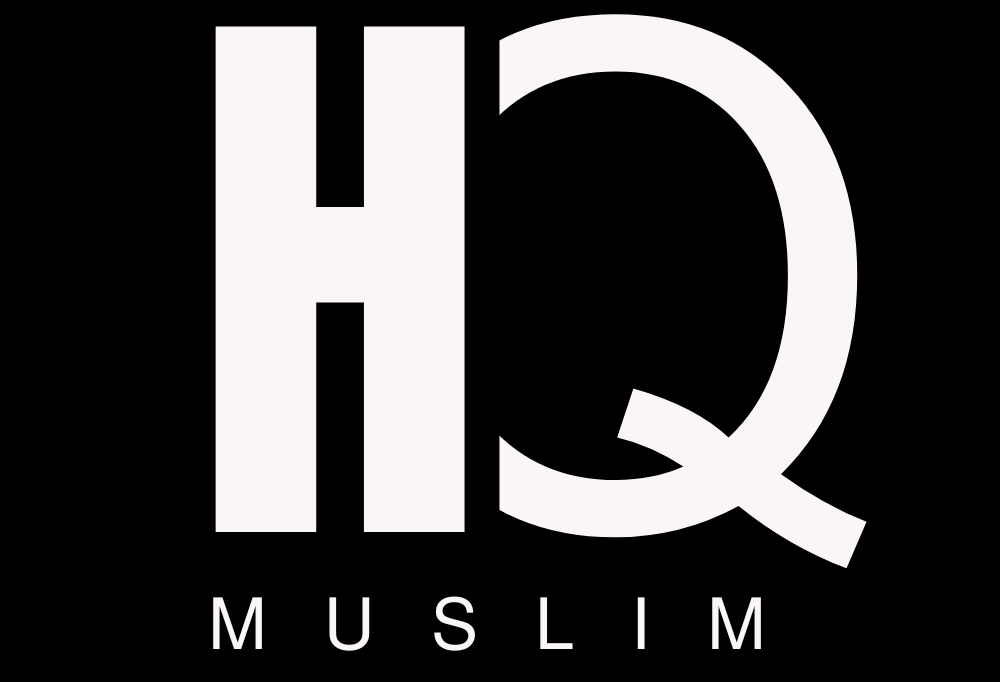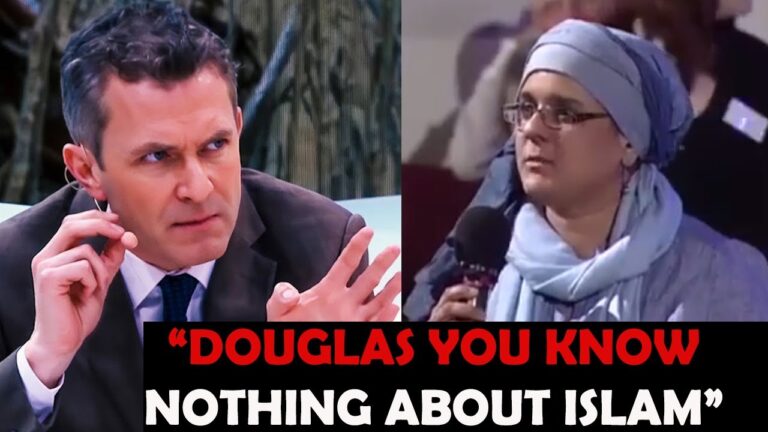Faith Beyond the Headlines: How Palestine Opened Angelina Jolie’s Eyes to Islam’s Unshakable Power
✳️ Writers & Respondents – Who’s Speaking and Why It Matters
Narrator: An anonymous speaker, possibly attributed to Denzel Washington, speaks reflectively and intimately about Angelina Jolie’s alleged spiritual transformation. Angelina Jolie (Hollywood actress & activist): Presented not as a celebrity but as a seeker of truth, caught in a journey from media-fed illusions to moral clarity. Palestinians: Represent resilience under oppression, becoming a mirror for the speaker’s internal reckoning. Mainstream Media (TV, News, Film): Framed as gatekeepers of narrative control, shaping public emotion and blinding empathy. Islam & Muslims: Portrayed not as a doctrine but as lived faith—embodied strength, purpose, and quiet dignity under unimaginable pressure.
1a. The Image That Cracked the Illusion
📌 00:32
📝 The Point:
A single image—a child with a rock before a tank—triggered a breakdown in the speaker’s lifelong trust in media. That photo wasn’t just political; it was deeply personal—it shattered comfort and demanded confrontation. It started a domino effect: the beginning of seeing pain not as “theirs” but as “ours.” ⚖️ The Law: Truth sometimes hides behind the loudest lies. We don’t see the world as it is—we see it as we’re shown it. Visual symbols have power to bypass logic and touch conscience. 🔮 And So: The speaker’s world was built on a false narrative scaffold. It’s not just the child’s resistance; it’s our acceptance of their suffering that speaks louder. If one image can wake someone up, how many have we learned to look away from?
“Have we become so trained by screens that we can’t recognize real pain unless it screams at us through a meme?”
1b. Witnessing Faith Where Logic Fails
📌 00:93
📝 The Point:
Muslims under bombardment still praying, giving, and hoping made no sense logically—but emotionally, it was magnetic. What we might dismiss as blind belief is actually rooted endurance. Their strength wasn’t stubbornness; it was surrender—to a force that outlasted tanks. ⚖️ The Law: Faith flourishes when reason fails to comfort. Consistency in chaos reveals authenticity. Hope isn’t naivety when it’s forged in blood and still survives. 🔮 And So: The speaker saw Islam not as ideology but as architecture—for dignity, order, and soul. It wasn’t imposed, it was lived—like breath, like pulse. Islam’s strength doesn’t lie in what it claims—it lies in what it produces.
“If the world burns and someone still smiles, don’t ask what’s wrong with them—ask what they’ve found.”
1c. Realizing the Narrative is a Lie
📌 03:42
📝 The Point:
What was once seen as “news” became clearly scripted propaganda—flipping the oppressed into threats. Reality wasn’t just ignored—it was actively rewritten. Media didn’t just lie—it trained people who to cry for and who to fear. ⚖️ The Law: Control of language is control of emotion. Censorship isn’t just omission—it’s replacement. When you erase someone’s pain, you amplify their silence into loneliness. 🔮 And So: Palestine wasn’t just a place—it was a blind spot. The speaker wasn’t misinformed, they were misconditioned. Seeing truth was like being unshackled from emotional hypnosis.
“Is the truth being hidden—or are we just afraid to see it?”
1d. Palestine Didn’t Just Show Suffering—It Modeled Spiritual Power
📌 04:06
📝 The Point:
People losing everything still chose faith—that was the paradox that couldn’t be ignored. Their strength wasn’t in survival, but how they refused to become bitter. They weren’t resisting death; they were defending meaning. ⚖️ The Law: Dignity doesn’t come from having power—but from denying despair its place. You don’t learn resilience—you inherit it through belief. Real strength bends with purpose; it never fractures with pressure. 🔮 And So: The speaker saw faith not as dogma but as armor woven in mercy. Islam wasn’t just behind their struggle—it was inside it. That made Islam irresistible—not for what it preached, but for what it preserved.
“How do you defeat someone who doesn’t fear death because they’re already full of life?”
1e. Spiritual Questions Surface from Political Clarity
📌 05:30
📝 The Point:
The speaker began by trying to understand injustice, but ended up trying to understand herself. What anchored Palestinians wasn’t external—it was internal. The more she saw, the more hollow her own peace felt. ⚖️ The Law: True questions aren’t answered—they transform the questioner. External chaos forces internal inventory. Stillness found in others can expose noise within us. 🔮 And So: The search turned inward—from “What’s wrong with the world?” to “What’s missing in me?” She wasn’t looking for religion—she was craving alignment. Her eyes led her to Palestine, but her soul turned to Islam.
“Is it possible that in watching others suffer, we’re really witnessing the gaps in our own souls?”
1f. Islam Wasn’t What She Expected—It Was Everything She Needed
📌 07:77
📝 The Point:
Everything she thought she knew about Islam—she had learned from people who didn’t know it either. Muslims she met didn’t confirm her fears—they erased them with kindness, balance, and strength. The rituals, once seen as foreign or harsh, became poetic—a spiritual choreography for a meaningful life. ⚖️ The Law: Stereotypes survive where relationships don’t exist. Ignorance wears many masks—often called “concern” or “security.” When real people enter your life, false stories lose their grip. 🔮 And So: Islam didn’t answer every question—it taught her how to ask better ones. She didn’t need to change who she was—only unlearn who she wasn’t. Islam didn’t push her—it pulled her gently by what already lived inside.
“What if everything you feared was the exact thing that could heal you?”
1g. The Spiritual Power of Palestine Wasn’t Accidental—It Was Intentional
📌 08:40
📝 The Point:
The people weren’t strong despite Islam—they were strong because of Islam. Their patience wasn’t passive; it was rooted in belief that every hardship is a test, not a sentence. She saw Islam not as a faith for “them”—but as a roadmap for all humanity. ⚖️ The Law: A belief system proves itself in practice, not just in texts. Suffering without meaning destroys. Suffering with meaning strengthens. The best arguments aren’t spoken—they’re embodied. 🔮 And So: Faith wasn’t a byproduct of oppression—it was a defiant act of transcendence. Islam didn’t isolate—it connected her to something larger, something eternal. What they endured in Palestine, she absorbed in her heart—and it redefined her.
“Could it be that the world’s most oppressed are actually the world’s most spiritually free?”
1h. Islam Didn’t Demand Her—it Welcomed Her
📌 09:34
📝 The Point:
Her journey wasn’t about “becoming Muslim”—it was about recognizing what already resonated. There was no pressure, only pull—towards justice, mercy, and divine responsibility. What felt like new religion was in fact ancient truth, finally spoken in her soul’s language. ⚖️ The Law: The deepest faiths aren’t adopted—they’re awakened. Truth doesn’t demand followers—it reveals paths. Acceptance is not submission to rules, but alignment with meaning. 🔮 And So: The transformation wasn’t visible first—it was internal, cellular, real. Islam became not something she wore—but something that wore down every false identity. The deeper she went, the lighter she felt.
“What if faith isn’t about changing your beliefs—but realizing what you always believed was possible?”
1i. Islam Isn’t Passive Faith—It’s Active Resistance to Injustice
📌 09:66
📝 The Point:
The Qur’an doesn’t just ask you to feel—it commands you to act. Silence in the face of injustice isn’t neutrality—it’s betrayal. Islam insists justice isn’t a suggestion; it’s the expression of real belief. ⚖️ The Law: Justice without courage is hollow. Religion that tolerates cruelty isn’t divine—it’s distorted. Faith without action is sentiment, not transformation. 🔮 And So: Her conscience couldn’t rest while others suffered—Islam gave it purpose. Activism became sacred, not just political. Her own silence before became her loudest regret—and now, her loudest lesson.
“If your faith doesn’t move your feet, does it really live in your heart?”
1j. Prophet Muhammad (peace be upon him) Becomes Her Moral Archetype
📌 10:29
📝 The Point:
The Prophet wasn’t abstract—he became the embodiment of the values she admired most: compassion, courage, and dignity. He wasn’t a symbol—he was a human who confronted power with mercy and injustice with truth. She saw his teachings alive in the people she admired—the Palestinians. ⚖️ The Law: A faith lives or dies in its examples. When values are lived out, they no longer need to be preached. Historical figures who still change lives today are worth learning from. 🔮 And So: Islam became personal—through the life of someone who lived for others. Her admiration turned into emulation. It was no longer “their religion”—it was a shared humanity.
“Is the truest leadership the one that turns pain into principles, and turns enemies into witnesses?”
1k. Islam Offered Her What the World Never Could—Peace With Purpose
📌 11:21
📝 The Point:
The world offered distraction, ego, and confusion—Islam gave her clarity, humility, and grounding. Her problems didn’t disappear—but her ability to face them transformed. Islam wasn’t an escape—it was armor, compass, and mirror. ⚖️ The Law: True peace isn’t the absence of problems—it’s the presence of meaning. Belief is not passive—it reorganizes your entire inner architecture. Faith doesn’t remove the storm—it teaches you how to walk through it. 🔮 And So: Her conversion wasn’t a leap—it was a landing. She didn’t find answers—she found the right questions. And in every answer, there was a new invitation—to live better, love deeper, believe stronger.
“What if the only home we’ve ever truly needed was already waiting—inside our own hearts?”
📘 Glossary
Shahada: Declaration of faith in Islam, affirming belief in one God and Muhammad as His Prophet. Resilience: The ability to withstand or recover quickly from difficulty. Narrative: A story or version of events, especially one shaped by media or culture. Oppressed: People who are treated unjustly or kept in hardship, especially by those in power. Prophet Muhammad (PBUH): The final prophet in Islam, revered for his life of justice, mercy, and truth. Qur’an: The holy book of Islam. Faith: Deep trust or belief, often in a higher power or purpose. Activism: Taking action to bring about social or political change. Doctrine: A belief or set of beliefs held by a group or religion.







